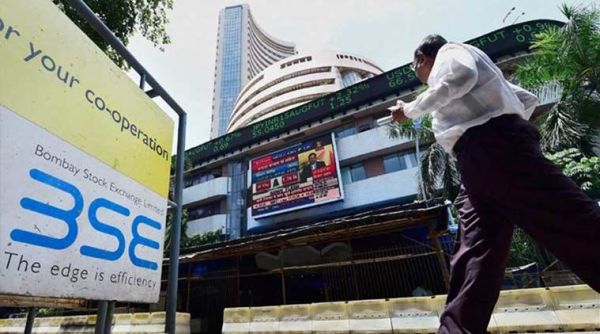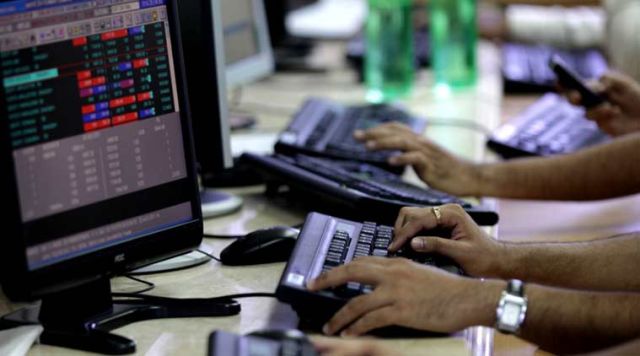
Escalation of global trade war to impact equity market (Market Outlook)
Mumbai : Fears over the imposition of more trade protectionist measures, along with a parliamentary deadlock may flare up further volatility in the domestic equity market in the coming truncated trade week.
Besides, triggers such as higher crude oil prices, derivatives expiry and the upcoming macro-economic data points are expected to influence investors’ sentiments.
“Markets next week would continue to be volatile guided by global developments on the ongoing trade issues between the US and China as well as the local political developments, especially the outcome of Rajya Sabha polls,” Devendra Nevgi, Founder and Principal Partner, Delta Global Partners, told IANS.
“Oil prices (Brent) have hit $70, adding to the risk aversion in India.”
Last week, economic tensions between the world’s two largest economies escalated after the US imposed tariffs on Chinese products and China announced plans for a retaliatory action.
“Market is expected to continue its volatile trade going forward and investors will continue to keep close eye on further actions by Donald Trump and the reaction of the Chinese government,” said D.K. Aggarwal, Chairman and Managing Director of SMC Investments & Advisors.
“Besides, global macroeconomic data releases, the movement of rupee against the dollar, crude oil price movement, investment by FPIs (foreign portfolio investors) and DIIs (domestic institutional investors) will continue to give direction to the markets.”
In addition, parliamentary proceedings, macro-economic points like Index of Eight Core Industries (ECI) figures, along with the country’s fiscal deficit numbers up to February and its external debt data will be keenly watched by investors.
“The fiscal deficit number for February to be declared on the coming Wednesday (March 28) will be closely watched for slippages,” Nevgi said.
According to Vinod Nair Head of Research at Geojit Financial Services, apart from weak global cues, domestic market “is underperforming” due to premium valuation, profit booking led by LTCG (long-term capital gains) tax and pre-election political uncertainties.
“We can expect this domestic chaos to stabilise by the end of FY18, as redemption pressure will be over. But due to risk of escalation in global trade war and domestic pre-election uncertainties, volatility may continue for some more time,” Nair said.
“The week ahead is truncated with two market holidays and F&O expiry adding volatility.”
Investment-wise, provisional figures from the stock exchanges showed that last week, foreign institutional investors purchased scrip worth Rs 2,524.13 crore and the DIIs invested Rs 211.91 crore in equities.
The National Securities Depository (NSDL) revealed that FPIs invested Rs 2,060.04 crore, or $316.99 million in equities during March 19-23.
On the currency front, the rupee weakened by eight paise to close at 65.01 against the US dollar from its previous week’s close at 64.93.
Technical charts showed a bearish outlook for the National Stock Exchange’s (NSE) Nifty.
“The Nifty remains in downtrend and further downsides are likely early next week once the immediate supports of 9,952 points are broken,” said Deepak Jasani, Head of Retail Research for HDFC Securities.
“Immediate resistance is now at 10,227 points.”
The key Indian equity indices — the BSE Sensex and the NSE Nifty50 — closed last week at 5-month low levels on the back of trade protectionist measures, apart from the ongoing turmoil in the domestic banking system as well as the uncertainty on the political situation in the country.
Consequently, the 30-scrip Sensitive Index (Sensex) of the BSE shed 579.46 points or 1.75 per cent to 32,596.54 points — its lowest closing level since October 23, 2017.
Similarly, the Nifty50 of the NSE edged lower. It ended below the psychologically important 10,000-mark level and closed last week’s trade at 9,998.05 points — down 197.1 points or 1.93 per cent — its lowest closing level since October 11, 2017.
The Indian equity markets will be closed on Thursday and Friday on account of Mahavir Jayanti (March 29) and Good Friday (March 30), respectively.
(Rohit Vaid can be contacted at rohit.v@ians.in)
—IANS


